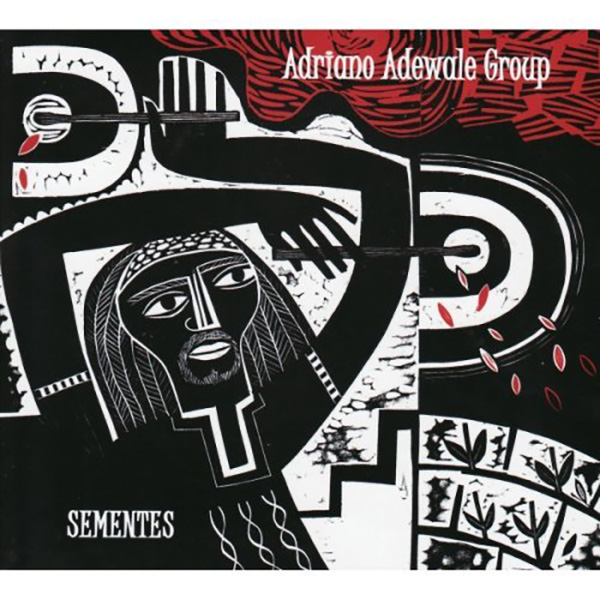
by Ian Mann
October 02, 2008
/ ALBUM
World jazz at its best. Exhilarating, uplifting, life affirming music from the planet via London
If any evidence were needed to demonstrate how London has become a musical melting pot this album is it. “Sementes” (or “Seeds” in Portugese) features London based musicians hailing from all over the globe.
The session is led by Brazilian percussionist/vocalist Adriano Adewale with the core group also comprising of Adewale’s compatriot Marcelo Andrade on saxes and flutes plus Senegalese kora player Kadialy Kouyate and Australian born bassist and flautist Nathan.R.Thomson. There are guest appearances from Italian guitarist Antonio Forcione, a long term associate of Adewale’s and from the Israeli Gilad Atzmon who appears here on both clarinet and accordion and also produces.
The music is all written by Adewale with the exception of the closing “Together” , a collaborative group effort. Adewale pulls the disparate styles his colleagues bring to the music together with aplomb. There is a good natured feel to this album and as a whole it hangs together remarkably cohesively.
Adewale is a gifted melodicist and there are some great tunes here starting with the joyous “Sempre” with Adewale’s percussion and Brazilian scat vocals driving the band. Andrade’s effervescent flute and Kouyate’s kora dance around each other, the whole underpinned by Thomson’s sturdy bass.
“Domingo” is more reflective with brooding alto flute, delicately lyrical kora, exotic percussion and a rich bass undertow. Atzmon adds both clarinet and accordion in the latter stages of this hauntingly effective tune.
“Comboio” sees Andrade introducing saxophones into the mix in tandem with Atzmon on clarinet and Thomson on alto flute. The horns make a joyful sound over Adewale’s chattering tarol ( a kind of snare drum) before the tune enters a darker, vocalised mid section.
Adewale has made a point of examining his African roots and the atmospheric “Family Album” is a reflection of this with the use of Kouyate’s kora and Thomson’s kalimba (African thumb piano). However the sound of Brazil is here too in Adewale’s voice and Andrade’s flute. The leader’s percussion binds the two strands together.
“Assim"re-introduces the horns of Andrade and Atzmon but it is Kouyate’s dazzling kora playing that takes the instrumental honours here. Adewale’s udu drum and Thomson’s low register bass groove provide rhythmic impetus.
“Passa Por Mim” is more overtly Brazilian with an infectious samba feel but Kouyate’s kora ensures that the spirit of Africa is never far away.
“Telefone” features Atzmon on accordion an instrument on which he is seldom heard. He combines well with Andrade’s soprano sax on this beautiful piece, both brooding and elegiac.
Forcione’ s acoustic guitar features on “Encanto”, a joyous offering with a pronounced West African feel. He duets with Kouyate over Thomson’s rich bass pulse and Adewale’s delightfully detailed percussion. Andrade’s alto adds extra melody and colour. It’s stirring stuff.
The closing “Together” is a brief improvisation with Adewale credited as playing “pipes” an instrument that sounds like a smaller version of Echo City’s batphones. Kouyate provides the vocal and Thomson adds the distinctive sound of the Masai flute. An interesting and atmospheric way to conclude a remarkable album.
Adewale combines his Brazilian and African roots brilliantly in a captivating synthesis. There is some stunning playing on this record and the writing and arranging skills are exemplary. Everything meshes together seamlessly, singling out individual contributions would be invidious-this is a great team effort.
As for the is it jazz?/is it world music? Debate, well there are enough jazz elements here to keep most adventurous jazz fans happy. But this brilliant inter-continental collaboration is world music in the best sense of the phrase. Exhilarating, uplifting, life affirming music from the planet via London.
One senses that the great Don Cherry would have approved.
blog comments powered by Disqus